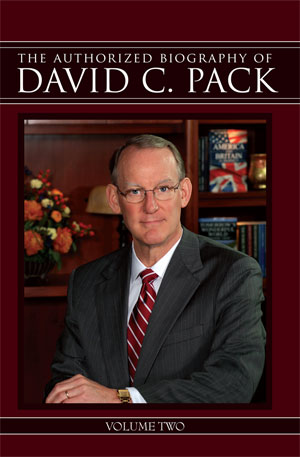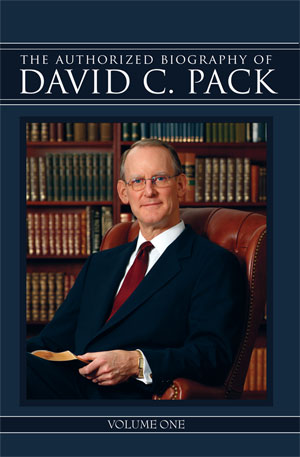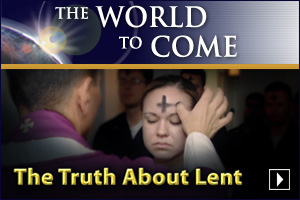“Change is everywhere. It’s in everything. And frankly brethren, when you come to understand people, it’s appearing in just about everyone…”
“I’d like to take you back to 1966 when I first learned the truth. Of all of the verses that struck me, I think one of the three or four that was the most profound to me, I don’t know why it struck me, but it just did. I can guess, and I’ll tell you in a minute, but let’s turn over to the verse…”
“I Thessalonians 5:21: ‘Prove all things. Hold fast that which is good.’
“Revised Standard and other translations will more often say ‘that which is right.’ Hold it fast. Now, that’s not one of the Ten Commandments, but the way it is written is a command from God. And it struck me pretty early on. I was still a teenager. I was under a lot of pressure—‘Don’t get into that church. It’s crazy.’ My Presbyterian minister wanted to tell me why I shouldn’t do it…”
“Suffice to say, this verse struck me. Why would God, through Paul, tell us to hold fast that which is good after we proved all things if it could not be done? Now you know how people say, ‘You can prove anything from the Bible,’ or ‘You can make the Bible say anything,’ or you can sometimes ‘disprove’ anything from the Bible. You can prove anything or you can disprove anything, or you can make it say anything. That phrase, in its various forms, was pushed at me in 1966 by people that my parents wanted me to talk to…”
“The word there for hold fast, if you look up the word, here is what it means. It is the Greek word katecho. Any of you ex-Catholics recognize what word comes from katecho…catechism puts the emphasis on the first syllable. It means to hold down or hold fast, to have, to keep in memory…”
“You know I think one of the most amazing things about the changes through the doctrinal sleight of hand we all lived through was that people just forgot how much truth we had. They just forgot it! It just went out of their head. They had it, but they never studied later on the way they always studied earlier on, and it just went out of memory.
“It’s interesting what katecho means. The Catholics know what it means. When they decided to name the course work for little kids who were part of CYO (Catholic Youth Organization) they called it catechism because they knew exactly what katecho means. Now they don’t hold to the ‘hold fast that which is right’ part, but they want kids to prove all things within Catholic doctrine. It always means possess. The truth is something we possess, retain, take, seize on and stay. That’s strong. I don’t know why, but when I was 17 years old…it just struck me how it wouldn’t say to do that if it cannot be done…”
“Malachi said that God would send Elijah the prophet before the coming of the great and dreadful Day of the Lord. Christ is commenting on that [in Mark 9]. The scribes knew of that verse, the last verse in the Old Testament. Mark 9:12: ‘And he answered and told them, Elijah verily comes first, and restores all things; and how is it written that the Son of man, that he must suffer many things, and be set at nought.’ In other words, be rejected as just a nothing—as a ‘nought.’
“Mr. Armstrong believed he was the Elijah to come. There are those who believe it and those who don’t, even within Global, among the ministry. You just might be aware of that. I do believe it. I do believe he restored all things. We discussed it in the Council. It’s come up. I do believe it. I believe he was the Elijah. I can’t understand how an Elijah will come at the very end doing mighty miracles, traversing back and forth across the land right before another two guys come and do the same thing. It doesn’t make sense to me.
“And for those that feel ‘Well, Mr. Armstrong would have had to do a lot of mighty miracles.’ Look, John the Baptist came in the spirit and power of Elijah and he did no miracles! He didn’t even baptize anybody where they received the spirit of God.
“If Mr. Armstrong was Elijah, and if he restored all things, all of the truths of God, and if an apostle was among us, we better be very, very careful brethren before we get off into little ‘this’s and that’s’ on what I call the edges of doctrine. It is a very dangerous thing. It is really the core of the great lesson for our time.
“Now I’ll talk more about that, but first I would like to turn to Acts 17. There are those who think a sermon has to have something new to be exciting…I think the most exciting thing in the Bible is the truth. The truth is what fits. The truth is the mind of God. What could be more exciting than that? Studying something that is new, but false—but hey, it’s new!…”
“Acts 17:20, Paul is being accused, ‘For you bring certain strange things to our ears: we would know therefore what these things mean.’ Verse 21, ‘For all the Athenians and strangers which were there spent their time in nothing else, but either to tell, or to hear some new thing.’”
“‘Oh, now we’re going to hear another sermon that is just the same old, same old are we?’ and I heard that a lot. As a matter of fact, I came to appreciate down through the years there were people who would say ‘I want to hear more meat in the sermon.’ Invariably, what those people were saying, and I don’t recall an exception, ‘You are not telling us anything we don’t know. I want to hear something new.’
“I was sitting in a meeting with a group of ministers sometime back and one of them said, ‘You know what, we need to think of something new because the brethren want something new.’ I was appalled, and that’s exactly what was said. You know what, most of the others in the group didn’t react to it…”
“Do you want something new, or are you willing to live with the same old, same old? Beware of being unwilling to change in the areas of your life that involve character growth, but always willing to take a look at that little different idea that comes along—when a real Christian is supposed to be unwilling to change when it comes to ideas, but always willing to take a look at his character and change wherever he needs to…”
“We in Global must not be part of what I call the ‘broad Sabbatarian brotherhood’ out there that is reflected in the kind of ecumenical thinking that the Catholic church has brought to the front page in the world today. Mama Rome wants to bring all the baby girls home. All the harlot daughters need to be brought home to Mama, and that’s the goal. That’s what the book All Roads Lead to Rome is about. We talked about that two or three years ago, when that book was hot. We cannot be in God’s Church spiritual ecumenists.”
“Let me make a statement, and I hope that you never forget it. If any of you ever read this thing called The Journal. It makes me sick whenever I read it. I periodically read through certain bits of it, and kind of hold my nose, only because people call me from other organizations as they’re taking a look at Global and I need to know something of the things they’re reading. I quit reading it for six months, I couldn’t stand it.
“It was kind of like the new PT [The Plain Truth]. After all, I couldn’t bear to read that anymore, but I kept reading it because there were people coming with us who were seeing things in it, and for them, the experience of coming out of all that was raw, and…they needed help, and I couldn’t very well say ‘Well, I haven’t read one in a year.’
“So the same thing is true with this matter of The Journal. But what I notice is—I’m not trying to attack the authors or anything—I’m just telling you there are an awful lot of people who have come out of the apostasy who are what I would call ‘hybrid brethren.’ There are ‘hybrid ministers.’ They certainly didn’t run off after all the junk that we left behind 350 doctrinal changes ago. But, there are those who picked up a lot of baggage.
“I’ve often found it interesting and had to be very careful myself. ‘Oh, I didn’t pick up any baggage,’ while they have one bag in each hand, one under each arm, a bag hanging from their teeth and one hanging on each ear—and ‘they didn’t pick up any doctrinal baggage.’ They don’t realize how much they ingested. And yet the basic command was to ‘prove all things, hold fast that which is good,’ and that’s what the Berean’s did earlier here in Acts 17:11 ‘…in that they received the word with all the readiness of mind, and searched the scriptures daily, whether these things were so.’
“But, 10 verses later you’ve got this bunch from Athens, not very far from Berea. Boy, they said, ‘Titillate us!’ That’s what they wanted. So there are lots of hybrid brethren and hybrid ministers, and hybrid groups out there as a result. I’m not trying to attack them. I’m not even saying they aren’t converted in many cases, but they are missing a very fundamental command—and how deeply they are converted, and how hot they are, is a huge question…”
“Matthew 24:13: ‘But he that shall endure unto the end, the same shall be saved.’ All right, we have to endure. A lot of people thought five years ago when we were looking at this verse that endure means stay in the organization into which you were baptized. That’s what endure means, and if everybody leaves—you know the falling away is going to be a bunch of people who leave the Church, instead of the Church leaving the truth—it will be…people leaving the Church and we have to endure. A lot of people used this verse to not endure…and they misunderstood…”
“All right, it says endure, but what does it mean?”
“Look at II Thessalonians 3:6, we’re going to look at the Greek here again, ‘Now we command you, brethren, in the name of our Lord Jesus Christ, that you withdraw yourselves from every brother that walks disorderly, and not after the tradition which he received of us.’ But he commands them, ‘I command you, hold fast the tradition as you have been taught.’
“Now II Thessalonians 2:15, ‘Therefore, brethren, stand fast, and hold the traditions which you have been taught, whether by word or epistle.’ Hold fast. A little different Greek word here…krateo. See what you notice. Katecho is ‘hold down, fast, have, keep in memory, possess, return, take, seize on, stay.’ Krateo is ‘to use strength, a little stronger even, to seize or retain, to hold by, to hold fast, to keep.’ If you were describing to a Greek mind, if you said, ‘Well, I want you to krateo the rake. That means to ‘grab hold of’ or ‘lay your hand on it’, and ‘obtain’ and ‘retain.’
“Now the truth is something we obtain, and then we’re told after we grab it to retain it. That’s exactly what it means. That’s krateo, stand fast, and if people do not do this—withdraw from them. That’s what it says!…”
“Turn to II Timothy 1:13, this is katecho again, ‘Hold fast the form of sound words.’ We talked about the importance of sound words, a sound mind, and sound doctrine and so forth. You hear sounds words, don’t follow unsound things…”
“Next is II Timothy 3:14: ‘Continue you in the things you have learned and have been assured of knowing of whom you have learned them.’ Do you do that? You didn’t learn the truth from me, brethren. You learned the truth from an apostle who walked among us. You know who you learned it from…”
“If you are going to take a view of Church history, it starts with the Church in the wilderness 3,500 years ago. We have to take the 3,500-year-view of Church history. Starting with the Old Testament Church in the wilderness, the last 2,000 years of which have been God putting His Spirit in people. But you have to go to the Old Testament record as well. And when you do, you will find that there has always, always, ALWAYS been a battle internally for the soul of the Church, between those who would change and those who would not.
“Frankly, history is that those who want to change usually ‘win,’ and I put that in quotes. They usually ‘win.’ And they usually outnumber those who don’t because of the drive—the need—in human beings to go along to get along. To not be willing to disrupt the status quo is great. If you doubt that, look at how many stayed behind [in the WCG]…Look at how many held on. It’s just a fact. There’s been a 3,500-year battle for the soul of the Church. And if I read prophecy correctly, the battle is going to intensify, brethren, not diminish.
“I sort of used to think that when we came to Global we were in the kingdom of God. But then I began to realize, ooh, maybe we’re just in the Place of Safety. Then I realized, ‘No, maybe we’ve just come to a place where we’re stable.’ We’re not in the Place of Safety yet, and we’re not in the kingdom of God. Then I’ve had to back off a third time and realize, you know what, it’s going to be war, and that’s why we’ve been chosen to be soldiers. We’re called and told, ‘We must war a good warfare,’ and it’s going to be that way to the end…”
“Listen, I’ve been fired, brethren, three times in my life for obeying God directly when my salary was on the line. Do you think I fear being fired a fourth time when my salary isn’t on the line? I don’t. I don’t fear it at all. I don’t give it a second thought.
“I’m not trying to lay any ground work. I’m just telling you, you better make your own decisions as to what you’re going to do. Are you going to hold fast? Or are you going to sort of, over course of time, become hybrid brethren? It’s a danger for Global. We have to be very careful that we don’t want to be part of the ‘broad Sabbatarian brotherhood…’”
“But the point is, ‘They shall turn away their ears from the truth and shall be turned unto fables.’ We’re in that time. We no longer can say the time will come. Now brethren, we read that verse and let’s face it, the time has come. People won’t endure. It’s not, ‘it came and went.’ It is now come. And people are out there looking for teachers. All you have to do is read The Journal. Or read the Internet. And listen to the banter and the junk that goes back and forth as people pontificate to each other about this, that and the other—all kinds of ideas. The time is here now…”
“It will take courage, brethren. We’ve all had to exhibit courage already. Do you think we won’t have to do it again—before the seventh trumpet blows—that there won’t be other opportunities where you have to show courage? What if you’re in the presence of somebody, just you and one other person, in the presence of somebody who’s teaching something that’s wrong? Are you going to show courage?
“Look, let’s lay it on the table. What if San Diego teaches something that’s wrong? Are you going to buy it because it’s San Diego and, ‘Hey, we survived the apostasy, and now we don’t have to fasten our seatbelt anymore, everything’s fine.’ I won’t. If San Diego tells me to teach something that I do not agree with, I won’t do it.
“Now what would you do? What would you do?
“You better be careful though. Did you ever think, ‘Well, I don’t know, maybe I better leave?’ There’s this little detail though, where are you going to go? You better be sure that God has put His name somewhere else, if any of you who think you’re going to leave—you better be very, very careful because chances are you’ll go from the frying pan…to the fire, for sure. Unless God puts His name in another place…
“Will you ever go away? Well, I hope we never have to go away from this organization. I’m not planning to do that. But I’ll tell you what, I’ll go away from this organization before I’ll ever go away from the truth. Because the truth is where the Church is and God will put His name someplace else…”
“The above sermon carefully laid the groundwork in my mind for what God might require me to do. If He did, I had to be prepared to save the flock.”




























